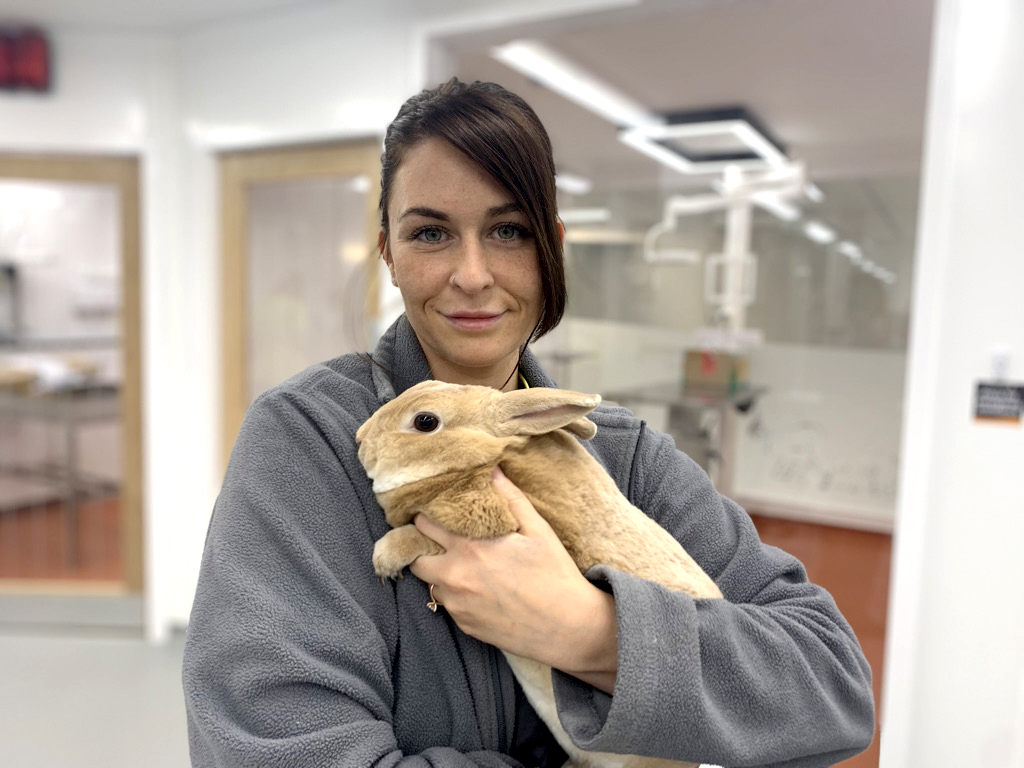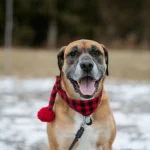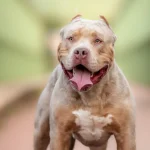Keeping our pets comfortable and safe in winter is so important. Whilst most pets have a lovely furry coat, don’t be fooled into thinking they’re all snug. In this winter special blog post, Group Practice Nurse Emily Bacon talks us through some of the most common issues facing our pets’ welfare during winter and explains how to overcome them.

“During winter, temperatures can plummet and for our pets – from rabbits, guinea pigs and hamsters to cats and dogs – there are numerous hazards that can easily be managed with a little care and preparation,” Emily explains.
“Get yourself a cuppa and take 10 minutes out to prepare yourself and your pet for any winter eventuality.”
Keep your pet warm
It sounds basic, but no matter how cosy their coat looks, pets – especially older pets – do extra attention paying to their needs during the colder months.
Let’s talk dogs…
During the colder days, we suggest you consider shorter walks, if possible, during daylight hours, and on return, dry off wet, cold paws. If your dog has walked gritted pavements, don’t forget to give them a wipe down to remove the salt. An extra layer, jumper or coat, is always a welcome addition during winter. We also advise keeping fur trimmed on paws to prevent small ice balls forming and becoming cold and uncomfortable.
Feline care…
Cats, especially older cats, love to snuggle up in a cosy indoor spot. we always advise that you create plenty of opportunities for your cat to slope off to snooze somewhere warm and quiet. If your cat spends a lot of time outdoors, encourage them in overnight with treats or other incentives. Try not to feed them before their final outing of the day and they will be back when they’re hungry! In extreme cold weather, cats can suffer from hypothermia and frostbite, so even if they seem a little sulky at the new house rules, remember you are keeping them safe and well. Before setting off in your car, always check underneath the vehicle, around wheel arches and engine space as cats will find any warm spot to bed down overnight.
Your smaller household pets…
If your furry friend is housed in an outdoor hutch, wherever possible move this hutch to a shed, garage or other sheltered spot for a little added protection. If this is not possible, we would advise you to raise the hutch off the ground by a small amount to prevent damp affecting their home. Increase their bedding and give them plenty of hay to keep their food intake and calories up. Importantly, we know that during the dark winter days there is an increase in foxes, badgers and other predators looking for more food. Please remember to make sure you protect an outdoor hutch with secure wiring that can’t be dug up from either side. A warm and breathable protective layer over the hutch will also help to keep them warm. Water bowls/bottles easily freeze so need these regularly checking. Bottles can be wrapped with thermal bottle covers and water bowls placed on a microwavable heat pad to prevent the water from freezing.
Some advice from our expert team
We understand that shorter days, darker hours and colder nights create all sorts of challenges for pets, but with careful planning, winter doesn’t need to be problematic. We are always on hand to offer advice and check over any pet you may have concerns about. Here’s some general advice that will help the season run more comfortably for you and your pet.
Be seen, be safe, our motto when it comes to the darker days of winter. With plenty of high visibility products to choose from, make sure you and your pets are clearly visible to vehicles, cyclists and other road and pavement users. High visibility vests and collars are available for all budgets. Led lighting collars are also extremely effective. Make sure you, as a walker, are easily seen too. Use a head torch to keep yourself and your pet safe and avoid trip hazards and potholes.
Anti-freeze. A big enemy of our pets. It may make our journeys safer, but an absolute no no for our pets. Please ensure that anti-freeze, de-icer and any other chemical solution is kept locked away from curious pets.
Litter trays. Whilst your cat may be an outside cat, during the colder nights of winter, it may require the warmth and comfort of an indoor litter tray. Always have a clean tray prepared to allow them that safe option. We always advise that you keep a litter tray in a separate area to your cat’s food and water. Access to a garage is always beneficial.
Keep your pets hydrated. During winter, make sure you keep your pets well hydrated and avoid the temptation to overfeed them. Keeping them active indoors is always a good idea, but generally, walks will be shorter and outdoor time more limited. As they slow down, they will require less calories.
Fire hazards. Whether it’s an open flame fire or a candle burning on a table, curious cats and dogs can sometimes get a little too close. Never leave pets alone near naked flames and ensure they stay a safe distance when sleeping in a warm cosy spot.
Reduce stress. Any change in routine can be stressful so plug ins/sprays can be helpful to help reduce this. Pet Remedy is a natural calming spray that’s available to purchase in all our surgeries. Cats can suffer a lot with any change in environment so we would encourage cat owners to contact their surgery to get additional advice on ways to help support their pet.
Prepare for a trouble-free season
It may feel like there are many additional things to consider during winter months, but on the whole, we generally live through these months without too much disruption and good planning makes for a safe season. We are always on hand to help whenever you have any question or concern regarding your pet’s health, comfort and safety. Please remember to stay on top of your pet’s routine health plan and prepare for seasonal changes around your home with your pet in mind. A little consideration goes a long way!




